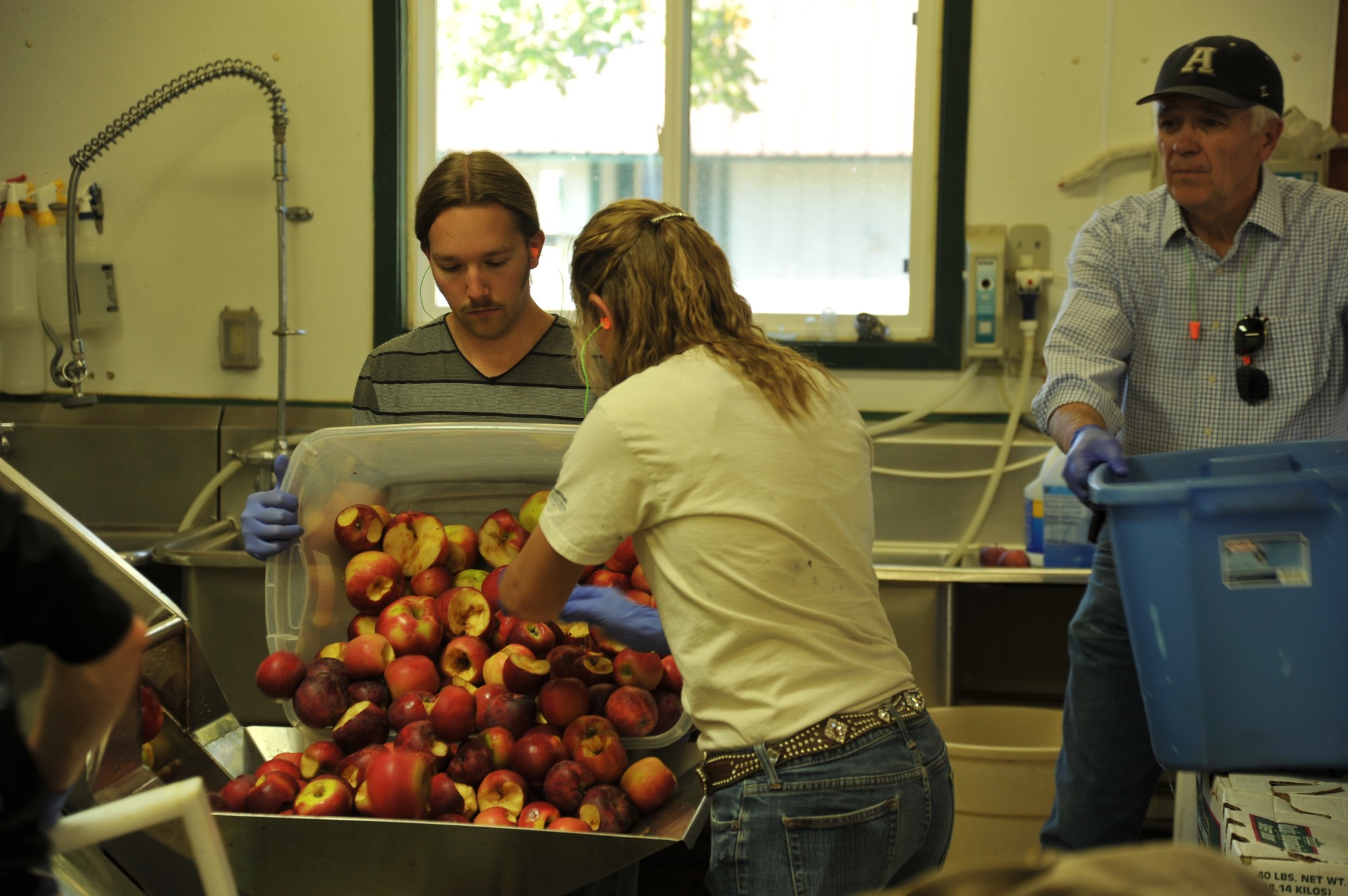Students work unusual jobs to afford school
Although Utah State University is listed by CollegeCalc.org as one of the more affordable universities in Utah, students still put in plenty of hours to pay for tuition and housing.
And some students have more unusual ways than others of making ends meet.
Cashing in at the (river) bank
Freshman Nick Benoit estimates that he spends less than 5 percent of his summer vacations indoors. In the past two years, Benoit has made the trip down Idaho’s Salmon River 16 times.
Benoit is the summer captain of one of six rafts for the Rocky Mountain River Tours. Along with three or four coworkers, he is responsible for being what he calls a “parental co-op.”
“It’s a lot like being a mom,” Benoit said. “But instead of being one person’s mom, you’re 30 people’s mom. And instead of driving an SUV or a minivan, you drive a big raft. So in the mornings we wake up earlier than everyone else and cook breakfast. And then we say, ‘Hey kids, we made pancakes. So eat your pancakes really fast so we can move on to the next place.’”
Beside cooking and cleaning, Benoit’s other tasks include setting up camp and piloting the gear raft. It’s up to him to make sure everyone’s supplies remain safe and undamaged.
Although he spent most of his days last summer rowing and working, Benoit still made efforts to study for the fall semester. As a computer science major, he said most of his attempts were unsuccessful.
“I brought a book along with me about algorithms in C++ that I would try to read,” he said. “I had a little notepad that I would try to write code in, but it was really, really hard to find time to work on it.”
Despite the time constraints, Benoit relishes his river experiences.
“It’s just a really pretty place,” he said. “You get to wake up early and see the sunrise almost every single day. Life is very simple on the river, and it’s just really nice.”
Versing their thoughts
In a single hour of work, sophomore Hannah Elliott can read and evaluate almost 200 poems. As a poetry judge for Creative Communication, Elliot reviews the poems children from kindergarten to high school submit for writing contests.
“It’s actually super fun. It doesn’t feel like a burdensome desk job,” she said. “I just get to hang out and read cool poems. A lot of times you’ll find a funny kindergarten poem that will make you chuckle or a kid that says something really dramatic that’s super funny. It’s really entertaining, actually.”
Elliot is required to reject at least a third of the poems that she receives. Rejections, she said, are much easier than acceptances. Any poems with profanity or sexual references are automatically eliminated, as are poorly-written or sloppy poems. Occasionally, she comes across truly impressive writing.
“I got a poem about One Direction once, which was really funny,” she said. “It had all these rhymes about how they’re all going in their own directions with their music. It was actually written really well.”
Although Elliot says she was never very interested in poetry before starting her job, she has grown to enjoy it and occasionally reads it for fun. She’s come to appreciate the value it can have to both readers and writers, she said.
“You’ll get a lot of really deep poems, especially from high school-ers,” she said. “Sometimes you’ll forget that these are real kids writing these, and sometimes you’ll get one that writes about a real problem they’re going through. You just feel for these kids. They’re going through a hard time, but they’ve found a way to express themselves through poetry, which I think is super cool.”
A stable job
Freshman Caitlin Dinkel didn’t know until last October that she wanted her longtime hobby to be her full-time career. An equine science major, she didn’t fully realize her passion for riding and training horses until she visited the Churchill Downs Racetrack in Kentucky with her Future Farmers of America, or FFA, chapter.
“I was on the back stretch and got to see the other side of horse racing that you don’t normally get to see,” she said. “And I knew then that that’s what I wanted to do for the rest of my life, that I wouldn’t be happy doing anything else.”
Dinkel began working with horses when her mother placed her in horseback riding lessons at the age of eight. With the help of three different trainers and support from her FFA chapter, Dinkel began professionally training horses and teaching riding lessons three years ago.
“It requires a lot of patience,” she said. “A lot of people expect instant results, but when you’re working with an animal that has a mind of its own, you can’t expect instant results. You also have to have a good understanding of the horse’s body language, and you have to make sure you know how your body language affects the horse’s thinking process.”
A good trainer, she said, has to be able to establish a relationship with the horse. For Dinkel, building that type of trust is the best part of her job.
“I like developing a bond with my personal horses — being able to develop a bond and see that relationship grow.” she said. “I also really like teaching people how to teach their horses. It’s fun for me to watch people when it finally clicks and they finally understand, or when they finally meet their goal for the first time. It’s fun to see other people get excited about their successes.”
— h.mickeyd@gmail.com or @h_mickeyd

